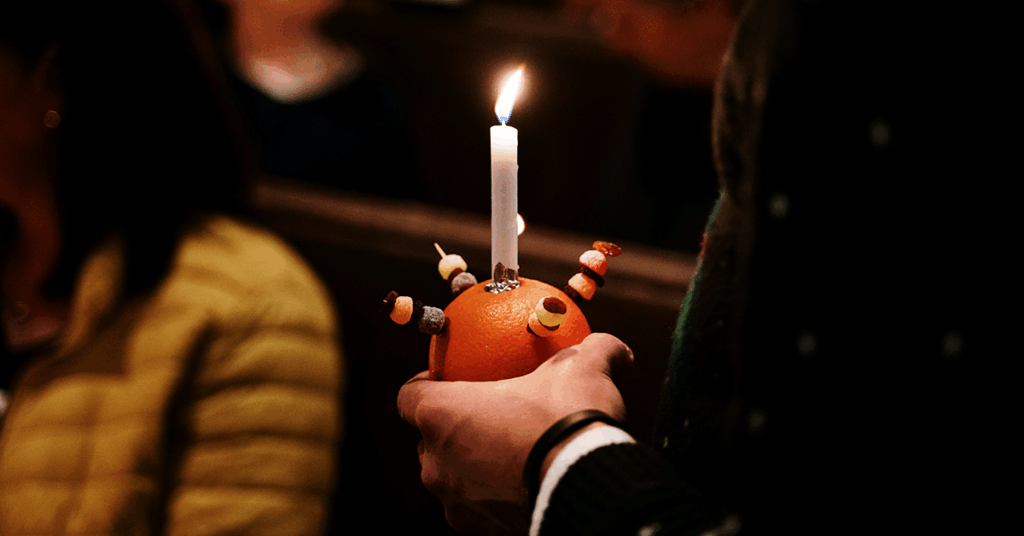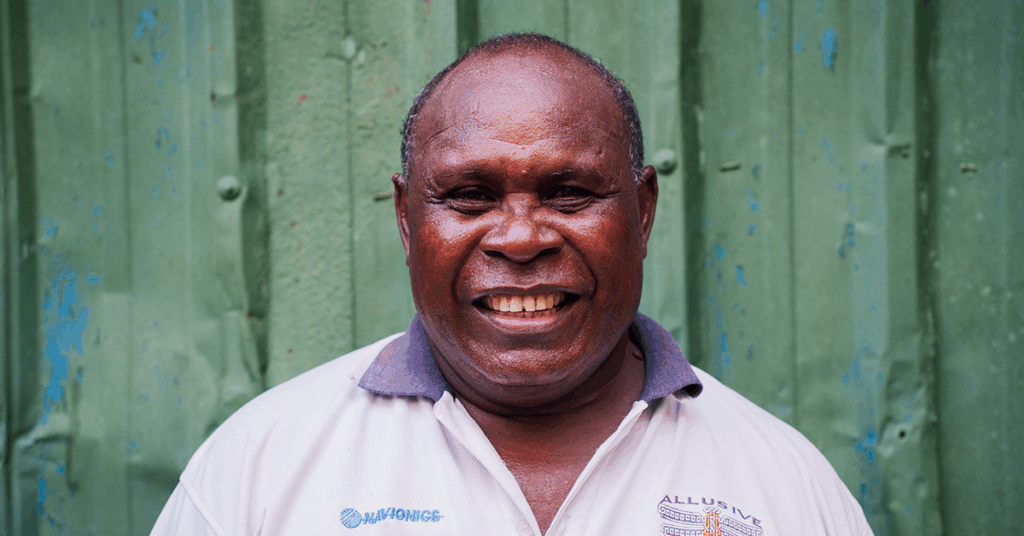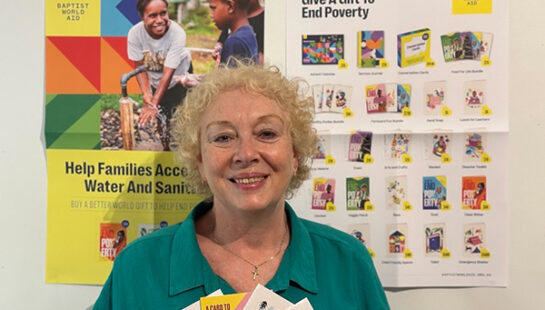‘But the angel said to them, “Do not be afraid. I bring you good news that will cause great joy for all the people.”’ (Luke 2:10)
Christmas looks different in communities across the globe. And as Christians, we have the profound joy of being part of a worldwide family of believers—beautiful in our diversity.
Here are seven wonderful ways our brothers and sisters around the world are expressing the good news of great joy that Christmas is.
Lebanon
In Lebanon, Christmas trees are less popular than this tradition: building a nativity crib. Set in a cave rather than a stable, the holy family is arranged alongside seeds that sprout and grow over the Advent season.
This live and growing scene becomes a place for the family to gather for prayer in the lead up to Christmas.
England (via Germany)
At Christmas in 1747, a German Bishop called John de Watteville gave candles wrapped with red ribbons to children as a reminder that Jesus is the light of the world. The Christingle (Christ Light) was born, and the custom spread around the world.
In 1968, The Children’s Society in England expanded on the Christingle’s symbolism to further explore the importance of Christmas with children. Now the Christingle is made from: an orange to represent the world God made; four sticks threaded with dried fruit or lollies to represent God’s provision; a red ribbon wrapped around the orange representing Jesus’ work on the cross; and a white candle placed in the top of the orange to represent Jesus as the light of the world.

Philippines
The city of San Fernando is called the ‘Christmas Capital of the Philippines’ because of Ligligan Parul—a festival dating back as far as 1904 where enormous, intricately decorated lanterns are displayed against the night sky.
Thought to have originally represented the star of Bethlehem, these days the lanterns are typically six metres wide and illuminated by thousands of bulbs intertwined to create a dazzling display of dancing light.
Ethiopia
Christians make up around 60-70 per cent of the population in Ethiopia, and the largest denomination within that are our Orthodox brothers and sisters who celebrate Christmas on 7 January.
After fasting and refraining from meat and alcohol in the lead up, on Christmas Eve, Christians dress in a white cotton garment called a netela and attend an overnight service from 6pm to 3am.
With no emphasis on gift giving, Ethiopians enjoy a day of feasting and traditional sports such as genna, a hockey-like game played without boundaries in the space between two villages.
The game—and the fun it brings—is thought to represent the shepherds’ joy at the birth of Jesus.
Bangladesh
Only 0.3 per cent of the population of Bangladesh are Christians. Nonetheless, 25 December is a national holiday known as Boro Din (The Big Day).
Christians celebrate with church services, kirtan (a traditional song and dance circle) and special Christmas treats. Many churches hold Preeti-bhoj (love feasts) after church where the whole community share a meal.
Uganda
Christmas or Sekukkulu is one of the most important holidays in Uganda, and families spend weeks preparing. Houses are meticulously cleaned, and many people prioritise buying new clothes. It’s common for people to travel long distances to their ancestral home, so they can attend church and big family reunions.
While gift-giving isn’t common, many families save money for months to buy ingredients for an elaborate Christmas feast. With all that effort, it’s not surprising that celebrations continue all day and into the night!
Solomon Islands
Nathanial, a local pastor who volunteers with our Christian Partner in the Solomon Islands shared what Christmas is like in his community.
‘Christmas is a time of celebration for the whole community, because we believe in God, and we believe in his son’ he said. ‘When it’s Christmas time, we make birthday cake and we say, “Happy Birthday, Jesus!”—it’s a birthday cake so big it takes four people to carry it to the front of the church! Then the Chief Elder will cut the cake, and we all sing Happy Birthday to Jesus.’

When it’s Christmas time, we make birthday cake and we say, “Happy Birthday, Jesus!”
As well as being a dedicated pastor, Nathanial gives generously of his own time to help communities transform their lives with sanitation initiatives that stop preventable diseases.
By working through local leaders, our local Christian Partners help communities take ownership of community development. This better equips them to fight poverty now and for years to come, so that one day, their children won’t have to.
You can stand alongside local leaders like Nathanial in the Solomon Islands and around the world with a gift to our Christmas Appeal.
Please give generously this Christmas so that families everywhere can thrive in good health and look forward to a future without poverty.



 Sophia Russell,
Sophia Russell,

 Baptist World Aid
Baptist World Aid